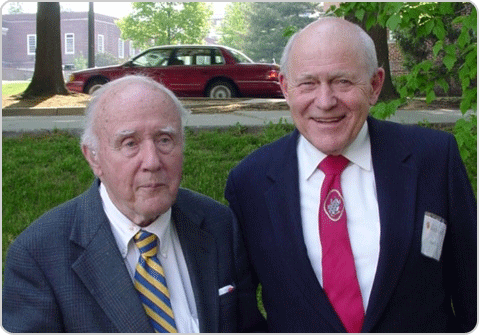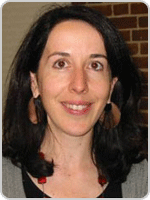Department Mourns the Loss of John S. Toll
- Details
- Published: Friday, July 15 2011 16:12
John S. Toll has passed away. It is not easy saying anything that will do justice to the warmth, intelligence, humility, generosity, and overall humanity to the single most important person in the history of this department, if not the University at large.
Debbie Toll said that John passed away peacefully in his sleep last night. There will surely be more information to come, and we will surely pass it along. Meanwhile, here's a very nice bio you can read.
http://www.aip.org/history/historymatters/toll.htm
With sadness,
Drew

Physicists John A. Wheeler and John S. Toll

